Extinction Rebellion plans ‘maximum havoc’ for polluters at COP26
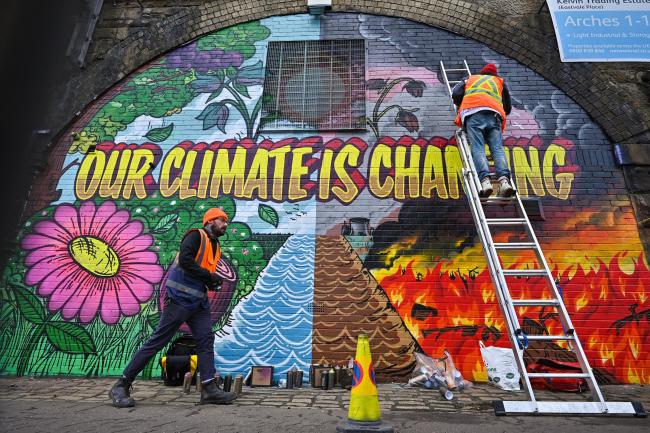
By Nan Spowart Journalist
CLIMATE change protestors have vowed to cause minimum disruption to Glaswegians during COP26 – but maximum havoc for those driving the climate crisis.
They are also calling for as many people in Scotland as possible to take to the streets on November 6 to join others across the world in a mass demonstration demanding radical action to reduce emissions.
Moray-based architectural designer Simon Clark will be among those protesting in Glasgow and told the Sunday National he is so angry about the crisis he is prepared to be arrested.
However he said more could be achieved if people turn out in their millions in cities and towns across the globe.
“This affects everyone and only a massive uprising of people on the streets across the world will really drive the massive change that has to come, otherwise it will be business as usual,” said Clark who is a member of Extinction Rebellion Scotland.
“The previous 25 COPs have failed in their purpose to reduce emissions. We have had 40 years of warnings, 30 years of negotiations and yet emissions have risen 50% since 1990 and the UN predict they will rise another 26% by 2030. We are in a climate emergency because of the lack of action. We are in the last chance saloon and the next few years will determine what will happen for thousands of years to come.”
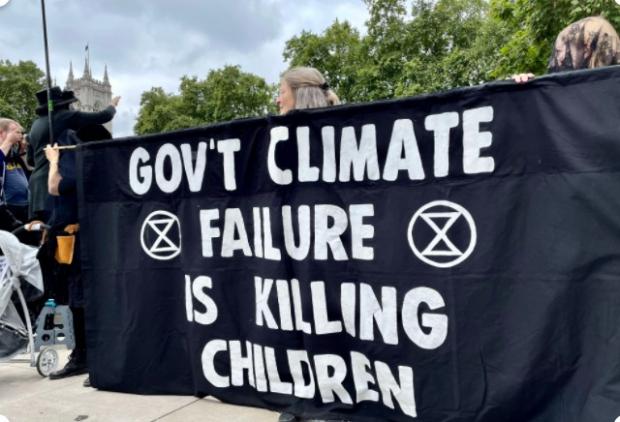
In the lead up to the mass protest on November 6 there will be a “Pilgrims’ Procession” on October 30, when protestors from across Europe will arrive in Glasgow before the start of the global summit the following day.
“The action call is to everyone who is worried and terrified about what the future will bring and who understands that the decisions that come out of COP will affect us all,” said Clark.
He said he was particularly worried by a recent report from the normally conservative think tank Chatham House which said there was only a 1% chance of keeping the rise in global temperatures at under 1.5 degrees and just a 5% chance of staying under two degrees. The UN’s Intergovernmental Panel on Climate Change (IPCC) has predicted major climate catastrophes even if the rise is kept to 1.5 degrees.
Clark became involved with Extinction Rebellion two years ago when he found out the target of net zero by 2050 was based on IPCC research that concludes it will still only give a one in two chance of avoiding catastrophe.
“I thought, my God, if I caught a train to London that had a one in two chance of getting there I wouldn’t even get on board – nobody would. And yet these are the projections that politicians and corporations are playing with. It’s criminal,” he said.
Critics have queried why protestors targeting a summit intended to take action to reduce global warming but the activists point out that every summit so far has failed to solve the crisis.
“Our view is that fuel companies, governments, investment banks and the media who will tell the story of all this, will spin it as a success to an unsuspecting public,” said Clark. “We take the view that COP will decide who is sacrificed, who escapes and who profits the most.
“Our objective is to be disruptive –not with the general public – but those who perpetuate the climate crisis.”
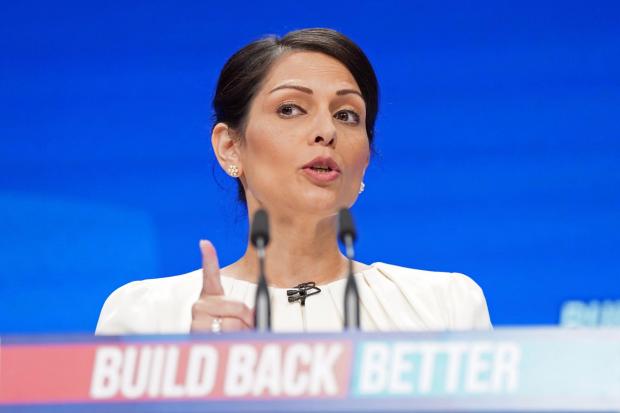
UK Home Secretary Priti Patel (above) has branded Extinction Rebellion as “eco-crusaders turned criminals” but Clark said his experience with the group was one of non-violent, direct action.
“We are a very disciplined bunch in terms of what we are doing. We are well organised and have specific ground rules about how we behave,” he said. “A lot of work is done on that and a lot of training in preparation for these actions. If we are advocating system change and a different world we need to behave as we would wish to see that world.”
He admitted the COP26 protest could attract elements more intent on causing mayhem than action on climate change but said it would be a “shame” if that was the media’s focus.
“Anyone can jump on it but generally I don’t think it happens,” said Clark. “It would be a shame if that image is projected because we are a peaceful, non-violent group and our view is that the major disruption to the people of Glasgow will be the event itself and the massive police and military presence protecting those in power. Anything we do will be tiny droplets in the ocean of disruption.
“We will focus on organisations that drive the climate crisis which is mainly fuel companies, investment banks and the media who prefer not to report the extent of the crisis. Our aim will be to minimally disrupt the people of Glasgow.”
The flagship march of the Global Day of Action begins at noon on November 6 at Kelvingrove Park and heads to Glasgow Green for a rally at 3pm. To see the Glasgow Day of Action route map on November 6 go to: https://goo.gl/maps/L5w4rB4bNeUrQk9G9
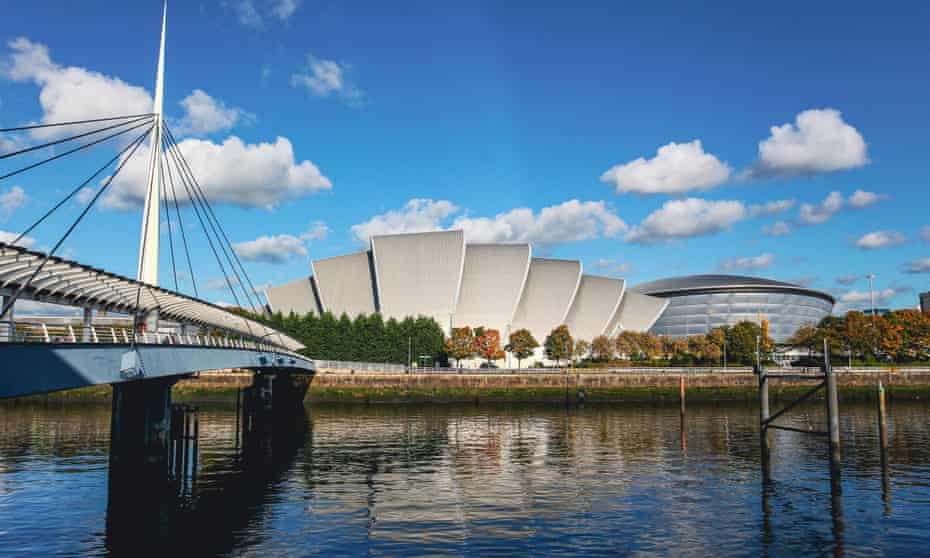
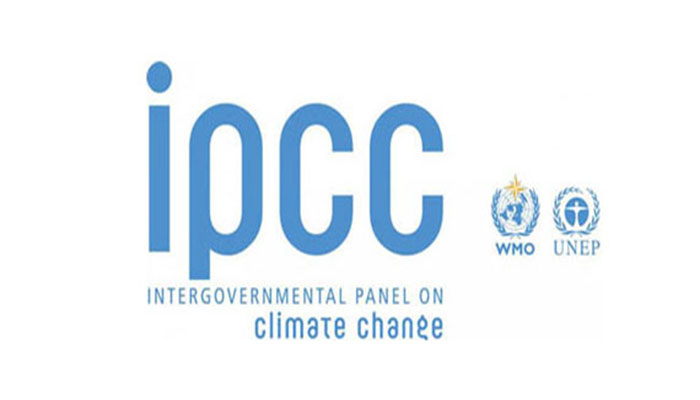


:quality(70):focal(638x440:648x450)/cloudfront-eu-central-1.images.arcpublishing.com/thenational/2HJEMWSW3NGBVABO3NSRH43YSA)
:quality(70)/cloudfront-eu-central-1.images.arcpublishing.com/thenational/FZNVBWTCMNKITF6OHDCIXXGDCI.jpg)
:quality(70)/s3.amazonaws.com/arc-authors/thenational/bc0b17e1-e718-4aa1-896b-c779fcd384c4.png)





:quality(70)/cloudfront-eu-central-1.images.arcpublishing.com/thenational/W2B7JJ45FOO4XK3WECT7GONI7Q.jpg)
:quality(70)/cloudfront-eu-central-1.images.arcpublishing.com/thenational/UYPKYIS2UBCRELQBNLEFVQMGLM.jpg)
:quality(70)/s3.amazonaws.com/arc-authors/thenational/52b1a973-24a3-4f16-bf80-6106a7da2d0d.png)
:quality(70)/cloudfront-eu-central-1.images.arcpublishing.com/thenational/7T5F4YQYEQBVKNU5YZSQQ5VIV4.jpg)
:quality(70)/s3.amazonaws.com/arc-authors/thenational/0c776a17-4aec-4e4c-95b2-489017fb7875.png)
:quality(70)/cloudfront-eu-central-1.images.arcpublishing.com/thenational/DWZPSM45VZFT4FXEGOSQOQ6H34.jpg)
:quality(70)/cloudfront-eu-central-1.images.arcpublishing.com/thenational/TLNWH3VCLUPIGEDXWWQ2BPM4FA.jpg)
:quality(70)/cloudfront-eu-central-1.images.arcpublishing.com/thenational/4C6FCDMEQQAMEO2KMDIFBMCW7A.jpg)
:quality(70)/cloudfront-eu-central-1.images.arcpublishing.com/thenational/PSWKK37PALBM4EIONZSRLOMAQ4.jpg)
:quality(70)/cloudfront-eu-central-1.images.arcpublishing.com/thenational/BGTZGGZXHTWHB5LUSHSSUCNXOY.jpg)
:quality(70):focal(3967x1565:3977x1575)/cloudfront-eu-central-1.images.arcpublishing.com/thenational/4WEQMWNPQELRFVRFLGORMJMIL4.jpg)
:quality(70)/cloudfront-eu-central-1.images.arcpublishing.com/thenational/VNO2BRIXQPWAGRTTH5VRM7CORQ.jpg)
:quality(70)/cloudfront-eu-central-1.images.arcpublishing.com/thenational/A655IS7LE7CBJDHTLBCSQ3PECY.jpg)
:quality(70)/cloudfront-eu-central-1.images.arcpublishing.com/thenational/AA3W34T6GLCYHWLVD4U6AJX7VM.jpg)
:quality(70)/cloudfront-eu-central-1.images.arcpublishing.com/thenational/ORKIV6RZWXCTHDT2LULCBXX52Y.jpg)
:quality(70):focal(-5x-5:5x5)/cloudfront-eu-central-1.images.arcpublishing.com/thenational/2QTOLXASPGRVTESHZOUOOFAVXU.jpg)
:quality(70)/cloudfront-eu-central-1.images.arcpublishing.com/thenational/2GA3JA4XNUBJ3ED5NQPOGVHYD4.jpg)
:quality(70)/cloudfront-eu-central-1.images.arcpublishing.com/thenational/Y6OMWWFJ2RUGJ7BX7VUODWMUHI.jpg)
:quality(70)/cloudfront-eu-central-1.images.arcpublishing.com/thenational/H5QVJB3OO6R3LSF2MVIGSDQ7PY.jpg)
:quality(70)/cloudfront-eu-central-1.images.arcpublishing.com/thenational/2OSCRGMATC2YADRKXO262UH22Q.jpg)
:quality(70)/cloudfront-eu-central-1.images.arcpublishing.com/thenational/PK5RA4XJXRTJYVHDXELJ5KEWII.jpg)
:quality(70)/cloudfront-eu-central-1.images.arcpublishing.com/thenational/7NPXZFE37KX2JTSHQQ2C3LY53M.jpg)
:quality(70)/cloudfront-eu-central-1.images.arcpublishing.com/thenational/EHIYVX3Z7MM2JRX6BQCTBZJZ3A.jpg)
:quality(70)/cloudfront-eu-central-1.images.arcpublishing.com/thenational/ZL2IKALB477XCWAW4SROOWVVVA.jpg)
:quality(70)/cloudfront-eu-central-1.images.arcpublishing.com/thenational/OWEN7VPWUWMRNOFDP4XAXALVJQ.jpg)
:quality(70)/cloudfront-eu-central-1.images.arcpublishing.com/thenational/EQZOVI6YX5FFTZZ6ZU2A26NATQ.jpg)
:quality(70)/cloudfront-eu-central-1.images.arcpublishing.com/thenational/3TKFPCDS5EUDJ2BFINAUXOQ4ZQ.jpg)
:quality(70)/cloudfront-eu-central-1.images.arcpublishing.com/thenational/FIKXSWMFZDAWX2VPFWTO7Q4CXQ.jpg)
:quality(70)/cloudfront-eu-central-1.images.arcpublishing.com/thenational/KI6Z52Y6FLJW6QV5XKDZZB2FBI.jpg)
:quality(70)/cloudfront-eu-central-1.images.arcpublishing.com/thenational/NU6DFGNXKO3TQUEQ4ZVKISD7NU.jpg)
:quality(70)/cloudfront-eu-central-1.images.arcpublishing.com/thenational/IF32D33BQXT3TSLTPR2L6DYDGI.jpg)
:quality(70)/cloudfront-eu-central-1.images.arcpublishing.com/thenational/MLCJQLE7VUYRHC26K2EQX7E6GA.jpg)
:quality(70)/cloudfront-eu-central-1.images.arcpublishing.com/thenational/S6SJ6OJDAZTEURIJNOBVDXSQRE.jpg)
:quality(70)/cloudfront-eu-central-1.images.arcpublishing.com/thenational/6QEELNRZNBQXEHLIHZHRL67PII.jpg)
:quality(70)/cloudfront-eu-central-1.images.arcpublishing.com/thenational/LHPWETGHMFWSDO6NREKGZ4AFZ4.jpg)